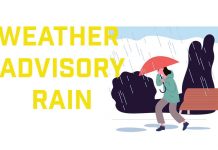MONCTON – Insurance Bureau of Canada (IBC) is encouraging Atlantic Canadians to prepare for gusty winds, periods of freezing rain, and torrential downpours arriving today and into tomorrow. Environment Canada has issued special weather statements for several regions across Atlantic Canada.
“The first priority is to insure the safety of yourself and your family,” said Amanda Dean, Vice-President, Atlantic, IBC. “That’s why we want to help make sure that Atlantic Canadians are prepared and ready for when bad weather strikes. Monitor local weather conditions, listen to local authorities, and have a plan in place to keep you, your home, and your family safe. If you have any questions, contact your insurance representative or call IBC’s Consumer Information Centre at 1‑844‑2ask-IBC. We’re here to help.”
Help protect your home when winter weather strikes:
- Store valuable items in upper floors of your home, away from the basement.
- Test and maintain smoke detectors and carbon monoxide detectors.
- Ensure your furnace, wood stove and any other heating sources are in good working condition.
- Anchor interior and exterior fuel tanks to the floor or base with a tank stability bracket. A fuel tank can tip over or float in a flood, causing fuel to spill or catch fire. Make sure vents and fill-line openings are above flood levels. For propane tanks, contact the propane company on best storage methods.
- Run water through all plumbing fixtures regularly to prevent freezing.
- Test plumbing shut-off valves to ensure proper functioning.
- Inspect your attic for frost accumulation, and check your eavestroughs and roof for potential ice dams or icicles.
- Prevent freezing of pipes by fitting exposed pipes with insulation sleeves or wrapping.
- Review your emergency plan with your family.
- Assemble an emergency supply kit, including being 72 hours without electricity.
- Prepare a detailed home inventory.
- Pay attention to local authorities and monitor weather developments regularly.
When severe weather occurs, it is important for consumers to understand their insurance policies and to know what is covered. If damage occurs, IBC is here to help policyholders if they have any insurance –related questions.
Starting the claims process:
- When safe to do so, assess and document damage.
- Call your insurance representative and/or company to report damage or losses.
- Be as detailed as possible when providing information.
- If you need help getting in touch with your insurer, contact IBC’s Consumer Information Centre at 1-844-2ASK-IBC (1-844-227-5422).







